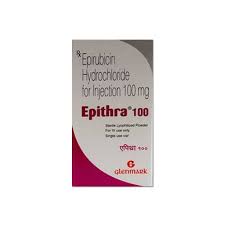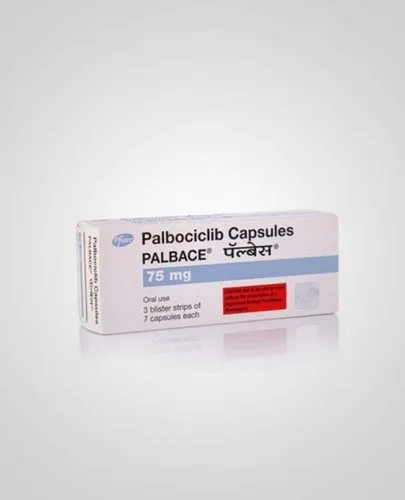Epithra is a prescription medication that contains 100mg of Epirubicin, an anthracycline antineoplastic agent used in the treatment of various types of cancer, including breast cancer, ovarian cancer, and soft tissue sarcoma. It is available in injection form.
Composition:
Epithra contains 100mg of Epirubicin, a yellowish-red powder.
Mechanism of Action:
Epirubicin works by:
- Interacting with DNA and inhibiting the synthesis of DNA and RNA
- Inhibiting the activity of topoisomerase II, an enzyme involved in DNA repair
- Inducing apoptosis (cell death) in cancer cells
Indication:
Epithra is indicated for:
- Adjuvant treatment of patients with node-positive breast cancer
- Treatment of patients with advanced breast cancer
- Treatment of patients with advanced ovarian cancer
- Treatment of patients with soft tissue sarcoma
Dosage:
The recommended dosage of Epithra is:
- 100mg per square meter of body surface area (m2) administered as an intravenous infusion over 3-15 minutes
- Dose adjustments may be necessary based on patient response and toxicity
Side Effects:
Common side effects of Epithra may include:
- Nausea and vomiting
- Diarrhea
- Fatigue
- Hair loss
- Increased risk of infections
- Increased risk of bleeding
- Cardiac toxicity (heart failure, cardiomyopathy)
- Pulmonary toxicity (pneumonitis)
Recommendation:
Epithra should only be used under the guidance of a healthcare provider. Patients receiving Epithra treatment should be closely monitored for side effects and potential complications.
Important Note:
- Epithra is a potent medication that can cause serious side effects, including cardiac toxicity and pulmonary toxicity. Patients should be closely monitored for these side effects.
- Patients with a history of severe allergic reactions to epirubicin or other anthracycline antineoplastic agents should not receive Epithra.
- Patients with a history of severe kidney disease or severe liver disease should be closely monitored while receiving Epithra.
Special Precautions:
- Patients with a history of cardiac disease or pre-existing cardiac dysfunction should be closely monitored while receiving Epithra.
- Patients with a history of pulmonary disease or pre-existing pulmonary dysfunction should be closely monitored while receiving Epithra.
- Patients with a history of bleeding disorders or pre-existing bleeding tendencies should be closely monitored while receiving Epithra.
It is important to note that the dosage and administration of Epithra may vary depending on the patient’s individual needs and medical history. It is recommended that patients consult their healthcare provider before taking this medication.




Reviews
There are no reviews yet.